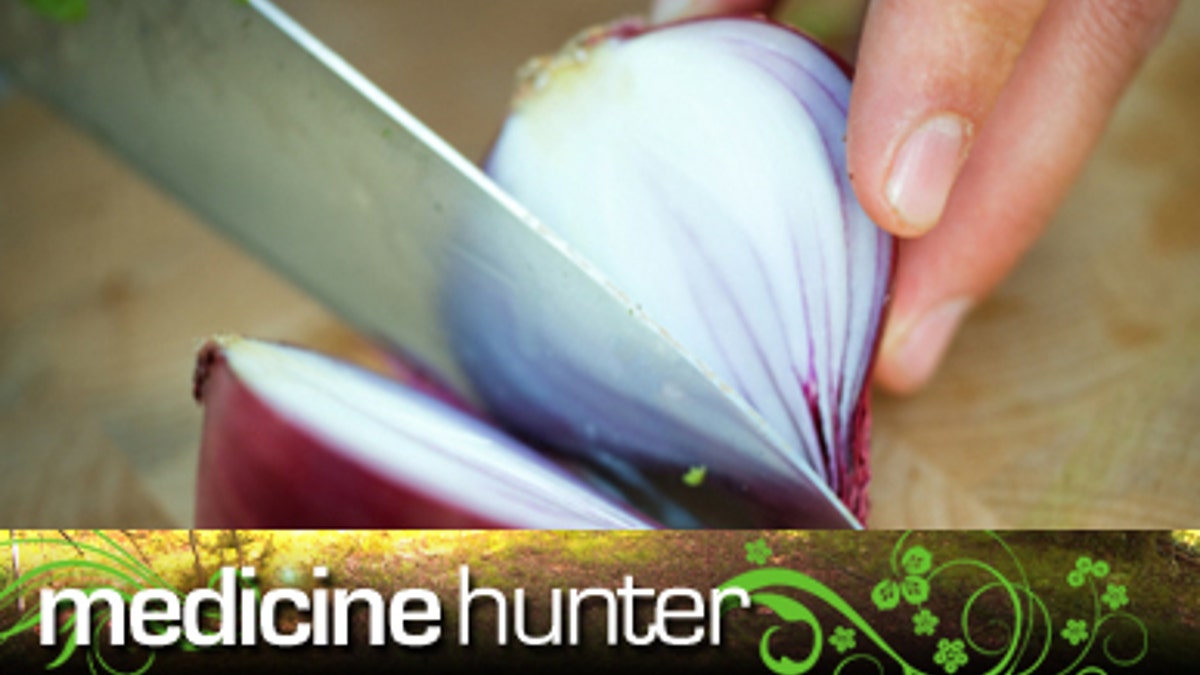
The famous chef Julia Child once remarked “I cannot imagine a world without onions.” The use of onions for food goes back at least 3,500 years, and the vegetable is one of the oldest of cultivated plants.
But the onion is more than a kitchen staple. It is a world-class superfood that has received very little fanfare, most likely because of its common position in cookery. And yet, compared with high-profile foods like pomegranates, red wine, and green tea, the onion offers superior benefits for both the prevention and treatment of many common diseases, including various kinds of cancer, coronary heart disease, type 2 diabetes, cataracts and more. In addition, onions can act as a powerful antibiotic and are helpful in reducing food-borne illnesses caused by microbial contamination.
Onions contain extraordinarily powerful compounds that possess many health benefits. Hundreds of scientific studies published on these naturally-occurring compounds show that they are highly protective to nerves and the cardiovascular system, and that they enhance immune function, fight the growth of many types of tumors, help to promote healthy hormone function, and many more.
Red wine may be the highly touted superstar of heart protection, but an appraisal of onion suggests that it exceeds the heart-protective properties of red wine by a generous margin. Could onion in fact be the real answer to the French Paradox – the fact that a comparatively low number of French people suffer from coronary heart disease despite diets that are rich in saturated fats? It makes sense. After all, almost no French recipe fails to include onion. Onion lowers cholesterol, inhibits hardening of the arteries, enhances elasticity of blood vessels, and helps to maintain healthy blood pressure. You could easily claim that the onion is the unsung cardiovascular-enhancing hero that has been right under our noses all along. We smell it, but don’t give it proper respect.
Equally impressive are the hundreds of scientific citations, which pertain to the anti-cancer properties of onion. While nobody is suggesting that onion is a cancer cure per se, it certainly is a valuable adjunct therapy, and it provides almost unequalled cancer risk-reducing properties.
Surprisingly, onion demonstrates significant blood sugar-modifying properties to be a real help in the fight against both type 2 diabetes and obesity. No, onion alone won’t keep you in fine shape, but it will help. In addition to limiting your intake of fats and sugars, eating onions can get your blood sugar-and your weight-on the right track.
So here is a simple, powerful health-enhancing recommendation: Eat an onion every day. One medium-sized onion equals approximately one cup of onion when chopped. And while raw onions contain a whopping load of protective compounds, even cooked onions still weigh in heavily on the protective side.
Chop onions into salads, cook them with vegetables, fish and meats, and find as many ways to eat them as possible.
Whatever has kept onion behind the curtains, while lesser fruits and vegetables are lauded, needs to change. The humble onion, with its tear-promoting pungency, is without question one of the healthiest things you can put in your body. Eat onions, and live better.
Chris Kilham is a medicine hunter who researches natural remedies all over the world, from the Amazon to Siberia. He teaches ethnobotany at the University of Massachusetts Amherst, where he is Explorer In Residence. Chris advises herbal, cosmetic and pharmaceutical companies and is a regular guest on radio and TV programs worldwide. Chris is the author of 14 books, including Hot Plants, Tales from the Medicine Trail, Kava: Medicine Hunting in Paradise, The Whole Food Bible, Psyche Delicacies, and the international best-selling yoga book, The Five Tibetans. Richard Branson features Chris in his new book, Screw Business as Usual. His field research is largely sponsored by Naturex of Avignon, France. Read more at www.MedicineHunter.com.








































